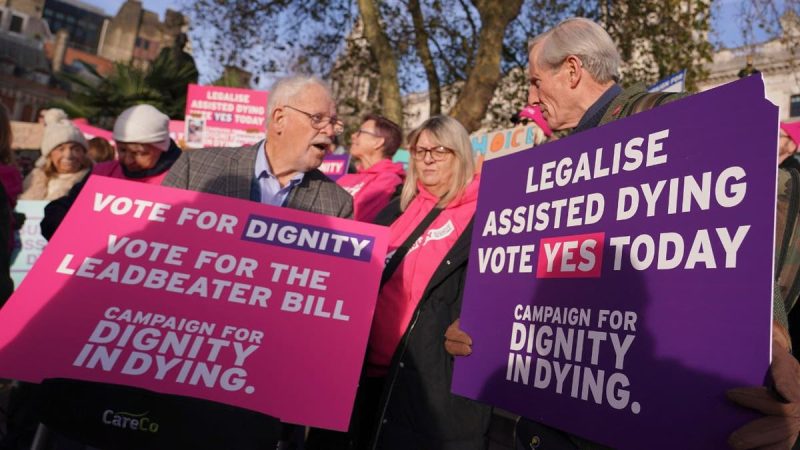In a significant move, lawmakers in the UK have voted in favor of a bill to legalize assisted dying, sparking both praise and criticism from various sectors of society. The bill, which passed by a narrow margin in the House of Commons, has reignited the ongoing debate surrounding the right to die with dignity.
Supporters of the bill argue that individuals should have the autonomy to make decisions about their own lives, including the choice to end their suffering if they are terminally ill or experiencing unbearable pain. They contend that legalizing assisted dying would provide a compassionate and humane option for those facing terminal illnesses, allowing them to die on their own terms with dignity.
On the other hand, opponents of the bill raise concerns about potential risks and ethical implications associated with legalizing assisted dying. They argue that such a law could have unintended consequences, such as pressuring vulnerable individuals to end their lives prematurely or undermining the value of palliative care. There are also fears that legalizing assisted dying could alter the doctor-patient relationship and erode trust in the medical profession.
The passage of the bill in the House of Commons highlights the complex and deeply personal nature of end-of-life decisions. It brings to the forefront questions about individual rights, medical ethics, and the role of the state in matters of life and death. As the bill moves to the House of Lords for further consideration, both supporters and opponents will continue to make their voices heard in this emotionally charged debate.
Ultimately, the legalization of assisted dying in the UK would mark a significant shift in how society approaches end-of-life care and the right to die with dignity. The outcome of this legislative process will have far-reaching implications for individuals, families, healthcare providers, and policymakers, shaping the future landscape of end-of-life decision-making in the country. The passionate debate surrounding this issue underscores the need for careful consideration, empathy, and respect for differing perspectives as society navigates this complex and sensitive issue.

